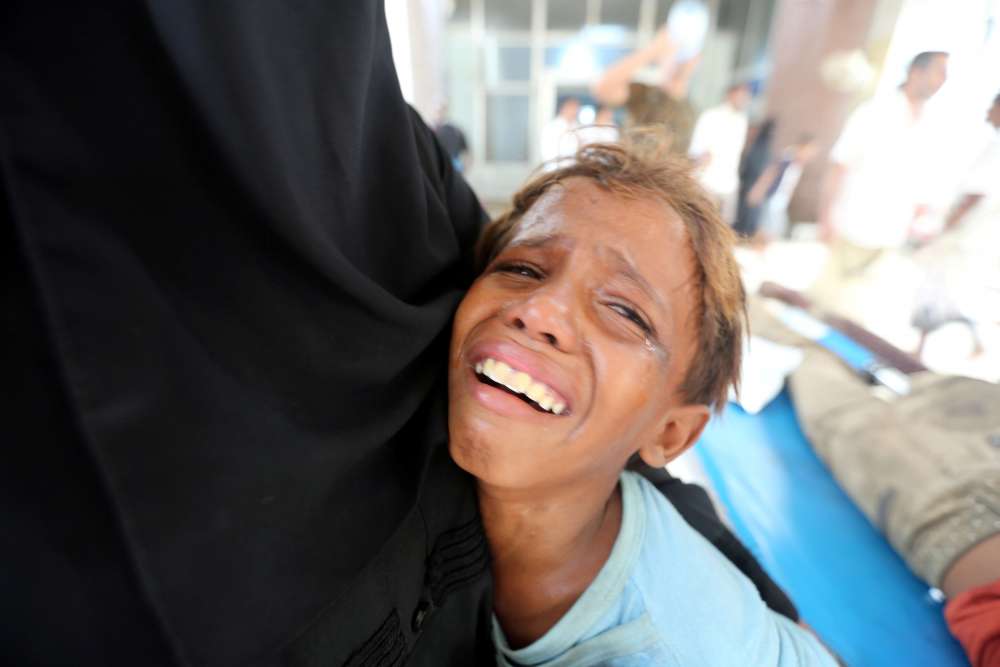Sixteen million Yemenis, more than half the population of the Arabian Peninsula country – are going hungry. Of those, five million are on the brink of famine, U.N. aid chief Mark Lowcock warns.
On Monday the United Nations hopes to raise some 3.85 billion dollars at a virtual pledging event to avert what Lowcock says would be a large-scale “man-made” famine, the worst the world will have seen for decades.
More than six years of war in Yemen – widely seen as a proxy conflict between Saudi Arabia and Iran – have sent the impoverished country spiraling into what the United Nations describes as the world’s largest humanitarian crisis.
Some 80% of Yemenis need help, with 400,000 children under the age of five severely malnourished, according to U.N. data. For much of its food, the country relies on imports that have been badly disrupted over the years by all warring parties.
“Before the war Yemen was a poor country with a malnutrition problem, but it was one which had a functioning economy, a government that provided services to quite a lot of its people, a national infrastructure and an export base,” Lowcock told reporters. “The war has largely destroyed all of that.”
A Saudi Arabia-led military coalition intervened in Yemen in 2015 after the Iran-allied Houthi group ousted the country’s government from Sanaa. The Houthis say they are fighting a corrupt system. The people’s suffering has been worsened by an economic and currency collapse, and by the COVID-19 pandemic.
U.N. officials are trying to revive peace talks, and new U.S. President Joe Biden has said Yemen is a priority, declaring a halt to U.S. support for the Saudi-led military campaign and demanding the war “has to end.”
Twelve aid groups, including Oxfam, Save the Children and Care International, have warned that 2.3 million children under the age of five in Yemen will go hungry this year if governments do not step up their funding on Monday.
Official figures vastly underestimate the spread of COVID-19 in Yemen, according to the United Nations and aid agencies.
In 2018 and 2019, the United Nations prevented famine due to a well-funded aid appeal, which included large donations from Saudi Arabia, the United Arab Emirates and Kuwait.
In 2020 the United Nations only received just over half the $3.4 billion it needed, which Lowcock said was largely due to smaller contributions from Gulf countries. He urged them to pledge generously for 2021 and pay quickly.






